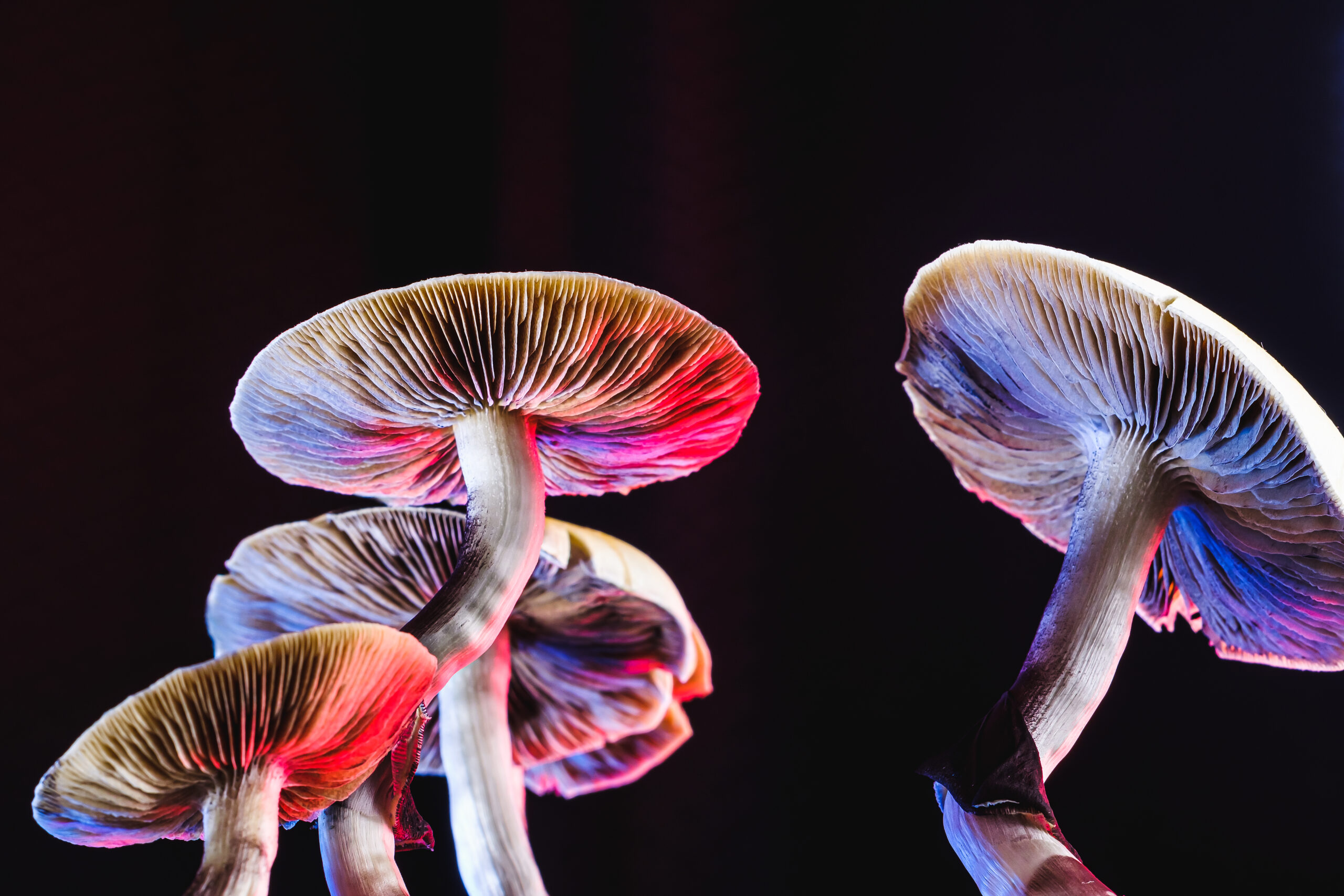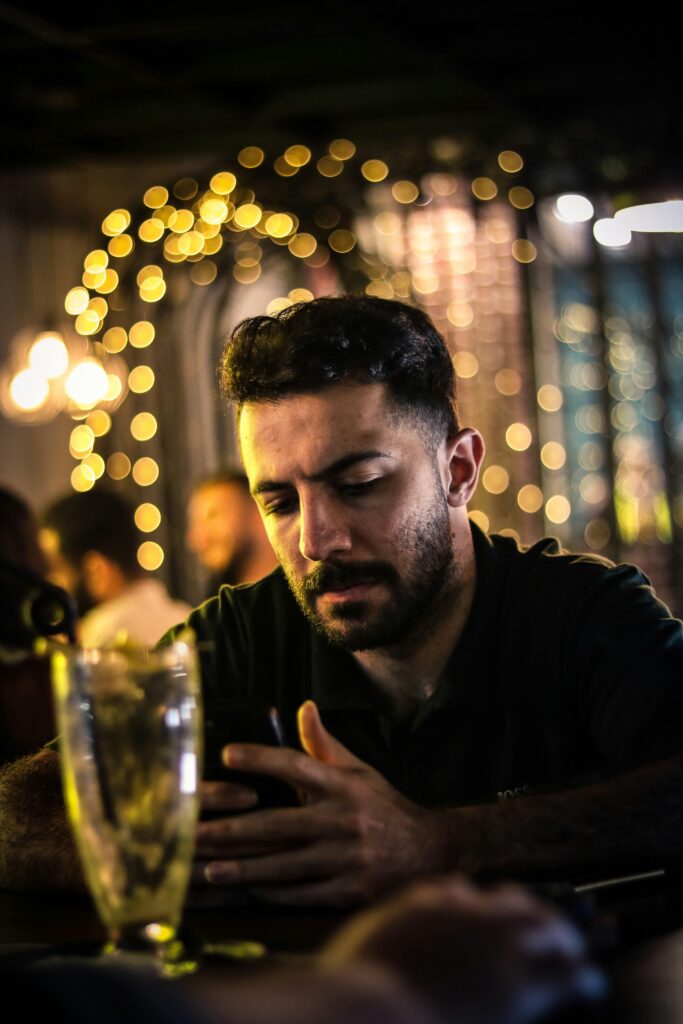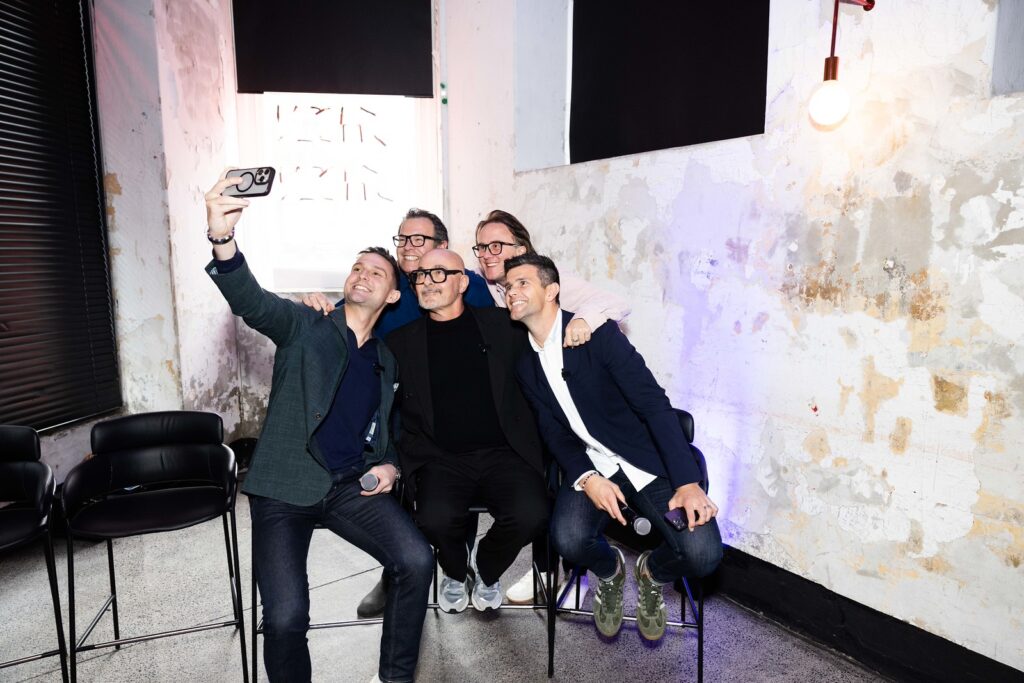WHEN I CATCH up with Dr Paul Liknaitzky, he’s sitting in his office at Monash University’s Clinical Psychedelic Lab, Australia’s first such lab, as a participant in the next room takes MDMA to help treat post-traumatic stress disorder. “They’ll be beginning the intensity of their experience now and that’ll continue similarly intensely until the middle of the afternoon and they usually are good to discharge around 5 pm,” says Liknaitzky, matter-of-factly.
Sometimes the doctor can hear the real-time outpourings of consciousness being altered and psyches re-shaped, as years of pain and trauma recede to reveal unique and profound insights. “I often sit here in my office and can hear somebody weeping for hours, or somebody laughing for hours, or both,” Liknaitzky says.
In a world first, Liknaitzky and his team recently trialled the use of psilocybin (the active ingredient found in ‘magic mushrooms’) to treat Generalised Anxiety Disorder (GAD). The results of the study will be published later this year, however, a glimpse into the two-year undertaking will feature in a documentary, screening on SBS, called Psychedelics: Stepping into the Unknown.
Liknaitzky speaks in measured tones about the outcomes of his trial but to a layman like myself, if they’re not mind blowing, they’re certainly mind changing. “The treatment was extremely useful and meaningful in the majority of participants on this trial,” says Liknaitzky. “And from many people, we heard that they experienced something like a new lease on life, like a new hope. Many people reported that it felt like the beginning of a new journey, one that would take considerable effort into their future, but it now felt like a future worth fighting for.”
In the placebo-controlled trial, the results showed participants given psilocybin saw substantially higher treatment benefits than the placebo group six weeks after their final dosing session, Liknaitzky says. It’s worth noting, he adds, that the placebo group were given nearly 40 hours of psychotherapy with two qualified clinicians, alongside an ‘active placebo’, in this case another drug that produces psychoactive effects during the eight-hour dosing days.
“So it’s not just a sugar pill, or a sham treatment, it is a lot of therapy,” says Liknaitzky. “And despite that, when we add psilocybin into the treatment, in addition to all of that other therapy, we’re getting about four times the rate of clinically substantial response, and about five times the rate of full anxiety remission.” Perhaps ‘mind blowing’ is the more fitting descriptor.
The trial adds to the growing body of evidence on the efficacy of psychedelics to treat mental health conditions and comes on the heels of last year’s decision by the Therapeutic Goods Administration (TGA) to permit the use of psilocybin for treatment-resistant depression and for the use of MDMA in the treatment of post-traumatic stress disorder.
Liknaitzky, like many involved in the treatment of mental health in Australia, admits he was surprised by the TGA’s decision. “The psychedelic research field has progressed dramatically and rapidly over the last five years, but we still operate under the long shadow of Nixon’s war on drugs and the propaganda surrounding these substances,” he says. “So this was an unprecedented policy change.”
The move has catapulted Australia to the forefront of psychedelic research, a field Liknaitzky himself has been pioneering. “I set up the country’s first psychedelic lab in 2020, and while our colleagues overseas have been working in this field for over 20 years, we were relatively new in this space,” he says.

Dr Paul Liknaitzky I Image: Jackson Finter.
While many have expressed concerns that the TGA decision will usher in a wild west of shonky treatments and charlatans seeking profit and recognition, Liknaitzky is quick to emphasise that this recent trial was integrated in its approach, using psychotherapy to harness the power of psilocybin to unlock altered mental states.
“In terms of actually producing psychoactive effects on the dosing day, while everybody’s experience is quite unique and quite dissimilar, the vast majority of people do experience very intense, dramatic, altered states of consciousness that they will report as being among one of the most meaningful, and often, challenging experiences of their lives,” he says. “So in terms of a method that produces the kinds of altered states that we’re targeting, it’s incredibly reliable. In terms of getting benefit, that’s more complex, and that is where the whole augmented psychotherapy frame is important. A lot of people look at this as though it’s a drug treatment and that misunderstanding is perhaps the most damaging of them all.”
Focusing on the efficacy of psychedelics in isolation, he says, can lead to people believing that self-medicating can yield similar benefits and can be just as safe as clinically supported psychedelic treatment. And can lead professionals to underestimate what it takes to do a good job within this treatment approach. “Now, it’s not to say that self-medicating has no potential value, but we know a bit about it [self-medicating] in the wild, and the risks are far higher, and the benefit far lower and far less reliable.”
So, how does psilocybin work? Liknaitzky says the very distinct and often very personalised insights the drug appears to offer individuals may unlock a drive to work on making positive changes in their lives.
“One of the critical things that is happening with a psychedelic experience is that these profound lessons that people seem to acquire are delivered through a deeply felt, highly personalised, often visionary-type experience,” he says. “People will often report a kind of journey into other people’s minds, or into their distant past, or into a completely different perspective on reality. And they will discover, often towards the end of the [dosing] day, or maybe even in the weeks afterwards, that they were unwittingly playing a role in a grand kind of theatrical lesson for themselves. It’s quite phenomenal.”
This can lead patients to experience a new perspective on themselves, their problems, or the world, Liknaitzky adds. “Sometimes that’s in the form of radical empathy–we’ve had a number of people in this GAD study revisiting early traumatic experiences that they had and experiencing that, not only from the perspective of the young helpless mind, but with a very deep and wise compassion for the situation, for themselves, maybe even for the perpetrator of whatever was going on. And that compassion can set people free.”
This new perspective on past trauma can lead to “a waterfall of insight”, Liknaitzky says. The challenge then, for both patients and practitioners, is to utilise the profound breakthroughs of “dosing day” to drive lasting transformational change. “All you’ve got are thimbles to fill up and carry into the rest of your life,” he says of the potent but possibly fragile outcomes of dosing days. “Our job in psychedelic therapy is to turn those leaky little thimbles into giant buckets that you can use to carry those lessons onward into the rest of your life.”
Liknaitzky is optimistic about meeting that challenge, not least because the psychedelic experience often produces an agency and determination in patients to pursue positive changes in their lives that hitherto wasn’t there. “People report in the days, weeks, and sometimes months afterwards, that they feel aligned to their values and what’s important in life,” he says. “They feel motivated to make a difference. They have a sense of hope. It acts like a beacon to follow, because the other lesson that we’ve learned is that in most cases it is not a one and done. Generally there’s a lot of work that’s still to be done in order to change the way in which a person relates to themselves or the world.”
Ultimately, he says, the name ‘magic mushrooms’, is not quite a misnomer. “It’s magic in some respects, but it’s not a magic bullet. It’s remarkable what we can support to happen, in a short space of time, yet what that tends to represent for most people is a compelling, motivating invitation to fight for a better future.” In that sense, psychedelic treatments for mental health are not so much of a ‘trip’ as they are the beginning of a potentially life-changing journey.
To find out more about the nation-leading psychedelic research at Monash University, visit www.monash.edu/psychedelics
Psychedelics: Stepping into the Unknown, the final instalment in the new season of Australia Uncovered, premieres on Thursday 29 February on SBS and SBS On Demand from 8:40pm.
Related:
Are magic mushrooms a breakthrough treatment against the scourge of depression?
Hallucinogen therapy: don’t swallow all the hype around magic mushrooms yet















